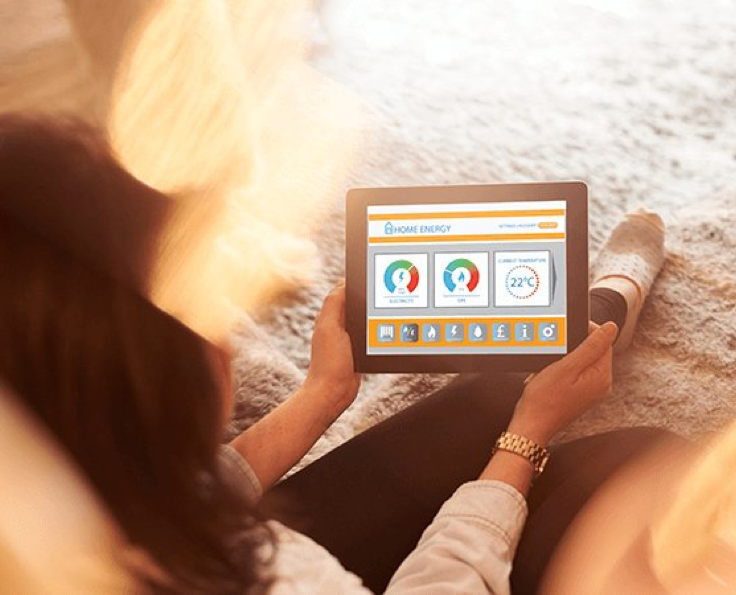How Your Smart Meter Can Save You Money
How Your Smart Meter Can Save You Money
Compare Electricity & Gas Plans
Save time and effort by comparing a range of energy plans with iSelect
What is a smart meter?
How can a smart meter save me money?
What are the other benefits of a smart meter?
How do I get a smart meter and how much does it cost?
How do I read a smart meter?
Do different states have different requirements for smart meters?
Can I get a smart meter if I’m renting?
What kind of data will my smart meter collect?
Where can I find an energy plan that uses smart meters?
Following recommendations by the Australian Energy Market Commission (AEMC), all Aussie households (excluding Western Australia and Northern Territory) could have smart meters by 2030.1Australian Energy Market Commission – AEMC on smart meters: 100% by 2030, new customer information, real-time data and protections
What is a smart meter?
Just like traditional energy meters, a smart meter is a gadget that measures your property’s energy use. But smart meters are, well, smarter!
They make a reading every 30 minutes,2Victoria State Government – Smart meters then automatically send the reading to your Electricity Provider. Depending on your set-up, you can then see up-to-date information about your energy use through an app, web portal or even an in-home display system.3As above
How can a smart meter save me money?
Simply getting a smart meter won’t automatically lower your bill. After all, your energy bill depends on your power use. But a smart meter will give you some opportunities to possibly lower your bill that a traditional meter doesn’t.
- Flexible plans
As smart meters provide more accurate and regular readings of your energy use, you can now access flexible Energy Plans. Also known as ‘time-of-use’ plans, these plans reflect the costs of managing the electricity network. So, you’ll get charged different energy rates during different times of the day.4NSW Government – Using smart meters Peak times will be most expensive, ‘shoulder’ times (those that bookend peak times) will be slightly less expensive and off-peak times will be the cheapest.5Energy Made Easy – Which type of tariff is right for you? Flexible plans are most beneficial if you’re able to minimise your energy use in peak periods, for example running your dishwasher or washing machine later at night. - Manage your bill with energy alerts
Keen to keep an eye on your energy use? You can set up automatic alerts through your smart meter to notify you if you’re using more energy than you’d like.6Victoria State Government – Smart meters This can help you remember to unplug that extra appliance or make other adjustments to use less energy. - More accurate meter readings
With a smart meter, you can say goodbye to estimated bills thanks to the more accurate and up-to-date information your provider can access.7NSW Government – Using smart meters Accurate bills means you won’t get sent a possibly over-estimated bill, nor will you have any surprise catch-up costs in later bills. - Cheaper to move house
Because providers no longer have to send someone out to your house to manually turn the power on or off, disconnection and reconnection fees have gone down where smart meters are concerned, making it cheaper to move house.8As above
What are the other benefits of a smart meter?
The benefits to a smart meter aren’t just financial. Having a better understanding of your energy usage and needs can help you make smart decisions across the board when it comes to energy plans and more.
- Understand your energy use
Knowing how you use electricity makes it easier to shop around for the energy plan that is most appropriate for your unique needs, as well as make adjustments to your behaviour. It’s okay if you didn’t realise how much power that big TV was using! - Switch easily between retailers
As your meter is read multiple times a day, you can switch to a new provider without waiting the weeks or months it used to take.9Victoria State Government – Smart meters When it’s so easy to switch, there’s no reason to stay on an energy plan that may be unnecessarily expensive or inappropriate for your energy usage. - Get faster detection for outages and faults
Because smart meters take readings so often, your provider will know about any power outages to your home or faults in almost real time. That means they can quickly and easily locate the problem, send repair crews, and check if the power has been restored.10As above - Access outage SMS services
With a smart meter, it may be possible to register with your Energy Provider to get sent a free SMS about any outages in your area and how long they think it’ll take to get up and running again.11As above This can help you plan your day and how to minimise inconveniences.
How do I get a smart meter and how much does it cost?
If you’d like to get a smart meter, simply call your Energy Provider and ask for one. Installation costs can vary depending on where you live and your provider’s fees, so be sure to ask your provider. The good news is that you can also shop around at this stage.
So if you are considering switching Energy Providers, now could be a great time to get the ball rolling.12Australian Energy Regulator – Smart meters Bear in mind that if you’re building a new home, or your traditional meter is faulty or no longer working, you will need to get a smart meter installed.13As above (This only applies to states and territories under the jurisdiction of the Australian Energy Regulator, but we’ll explain more about that soon.)
How do I read a smart meter?
Traditional meters have a dial display, making it harder to get a precise read. Smart meters, on the other hand, have a digital display with a button to press to see different information. Pressing the button will usually cycle you through:14Department for Energy and Mining – Smart meters
- Time, normally in 24-hour format
- Date, normally displayed as day/month/year
- Amount of energy used in kWh (kilowatts per hour)
- If you have solar panels, you could also see the amount of energy sent to the grid in kWh
- A test pattern to show that all the characters are working properly
Most meters will have a label explaining how to use them and what each bit of information means, but if you’re not sure you can always contact your Energy Provider and ask. You may also be able to view your energy usage through a connected app or online.15NSW Government – Using smart meters
Do different states have different requirements for smart meters?
The AEMC is aiming for 100% of homes in Australia (except for in Western Australia and the Northern Territory) to have smart meters by 2030.16Australian Energy Market Commission – Smart meters are a key enabler in the transition to net zero
However, this is only a recommendation and has not been rolled out as of yet. But if you live in any part of Australia, barring Western Australia, Victoria and the Northern Territory, it is a requirement by the Australian Energy Regulator (AER) that all new and replacement meters are smart meters.17Australian Energy Regulator – Smart meters So, if you’re building a new home or getting a faulty meter replaced, your Energy Provider will have to give you a smart meter.
Western Australia, Victoria and the Northern Territory don’t fall under the AER’s authority, but some local councils are in the process of doing their own smart meter rollouts too. In the Northern Territory, Power and Water is providing smart meters for all new and replacement meters,18Power and Water – Smart meter upgrade with all traditional meters to be replaced by 2034.19Power and Water – Rollout of new digital smart meters underway In WA, the aim is for 1.2 million smart meters to be installed by mid-2027.20Western Power – Advanced Metering Infrastructure – the best way to meter electricity
Can I get a smart meter if I’m renting?
If your name is on the energy account and there are no upgrades or electrical work needed on the existing meter board, you can have a smart meter installed at your rental property. This can be done without permission from the property owner.21NSW Government – Using smart meters However, if work is required to the meter board, the owner needs to be contacted. This is because they will need to pay for this work.22As above Additionally, it is a good idea to check that your rental agreement does not restrict you from having a smart meter installed.
That said, in the spirit of keeping the peace with your landlord, it’s a sensible idea to discuss it with them before going ahead and getting the new meter installed.
What kind of data will my smart meter collect?
Concerned about data privacy? Your smart meter is nothing to worry about.
Your smart meter only collects data on how much electricity your home has used in a certain time period. It encrypts and then transmits this data, along with your meter ID number, to your Energy Provider over secure networks.23Department for Energy and Mining – Smart meters
Your smart meter doesn’t collect any personal information about you, including your name or address. Once your Energy Provider receives the encrypted data, they match the meter ID number with your account details in their own system to ensure that you are correctly billed. All information collected by your smart meter is protected by the National Electricity Law and the Australian Government’s Privacy Act 1988.24Australian Energy Regulator – Smart meters
Where can I find an energy plan that uses smart meters?
If you’re looking to find a suitable plan that is compatible with a smart meter or want to use yours more effectively, we’re here to help with your energy plan comparison. So start comparing Energy Plans from our range of providers* online today, or call us on 13 19 20.

.svg)






